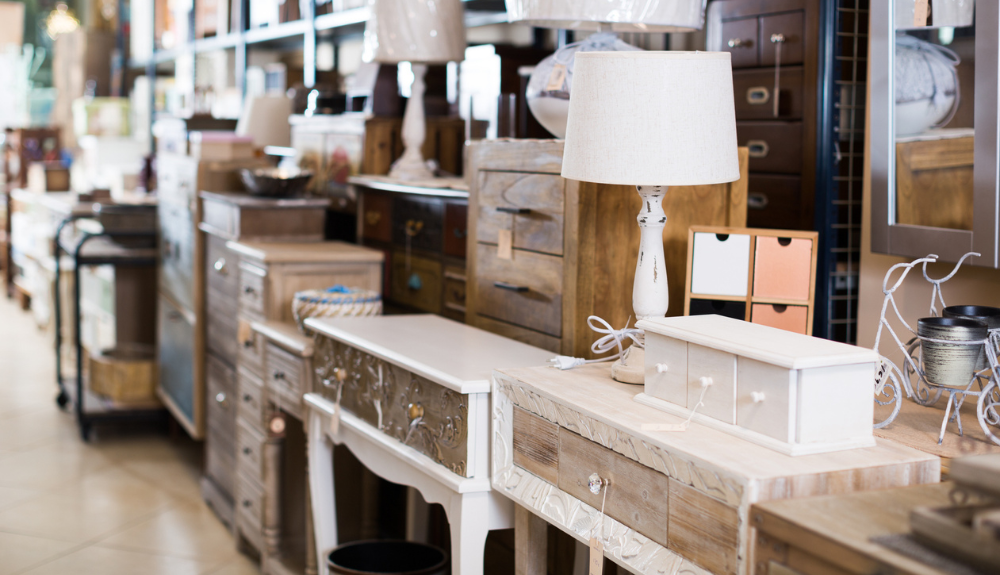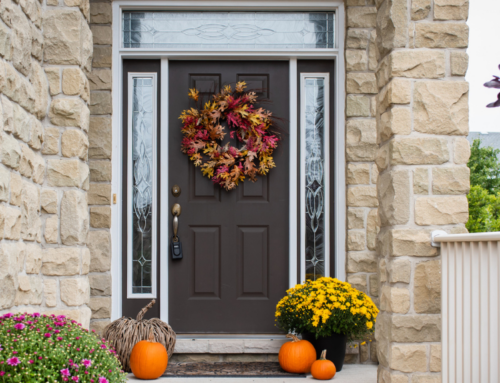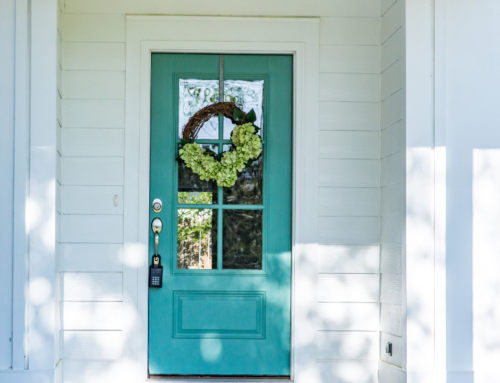When buying your first house, there’s a lot to grasp—much of which can feel intimidating. To help you through the initial stages, we’ve compiled seven things people wish they had known before they took the plunge and became homeowners.

1. Hold Off on Buying Furniture
Although it’s tempting to rush out and furnish your new home with beautiful, brand-new pieces, take your time with this part. It’s wise to spend a few months living in your home to get a better understanding of how you will use the space. For example, that room that you planned on making your office may turn out to be a noisy area of the house. Or maybe you find you need more space than anticipated in the dining room. This information is valuable when finding the best furniture and these realizations can only be made by spending time in your new home.
2. Explore the Neighborhood
Sure, the home might look perfect, but what about the neighborhood? Take time to visit the area in person more than once. Visit at different times of the day and week. Check out the local schools, even if you don’t have children—good schools often correlate with property value stability. Be sure to research crime rates and commute times as well.
3. You Don’t Actually Need to Put 20% Down
The long-standing myth that you need a 20% down payment to buy your first home is a big deterrent for potential homeowners. Now for the truth. First time buyers only need 3% for a conventional loan. First time and repeat buyers only need a 3.5% down payment for FHA loans and there are even zero down loan programs. While putting down 20% can eliminate the cost of private mortgage insurance, PMI is a small price to pay if saving for 20% requires years of paying your landlord when you could be building equity.
4. Your Mortgage Will Likely Change
As a first-time homebuyer, a 30-year mortgage may seem like a lifetime. And if you’re committing to 30 years of payments, it only makes sense to wait for the perfect market conditions. But in reality, your loan terms may change before you pay off that mortgage. Whether you refinance to get a better interest rate or move to a different home, your first mortgage is unlikely to be your last. Interest rates fluctuate, and there will always be opportunities to refinance or sell in the future.
5. Don’t Skip the Home Inspection
Investing in a home inspection is non-negotiable as it can save you from purchasing a property with hidden structural issues or other costly repairs. A thorough inspection also gives you negotiating power; if problems are uncovered, you can request the seller make repairs or lower the asking price. Skipping this step to save money upfront can end up costing you far more in the long run.
6. Don’t Be Fooled by Staging
Professional staging has the power to make any home look appealing, but it’s important to look beyond just the decor. Stagers use strategic furniture placement, artwork and lighting to highlight the home’s best features, sometimes masking its flaws. Be sure to remember that the home won’t come with the uber stylish furniture and decor you see. Instead, focus on the home’s structure, layout, and overall condition.
7. Have an Emergency Fund
You might be prepared for your monthly mortgage, utility bills, and property taxes, but owning a home means unexpected expenses, too. Even in a brand-new home, things will eventually break, and as the homeowner, those repairs are your responsibility. Having an emergency fund specifically for home maintenance can save you from financial stress when the inevitable happens.
Michigan Mortgage Lender, Julie Krumholz from Superior National Bank
With over 35 years of experience in the mortgage industry, Julie Krumholz from Superior National Bank is a trusted resource and friend to homebuyers. Julie has worked in processing, closing, loan origination, underwriting, and QC auditing and has even co-owned a mortgage brokerage firm. Julie applies her knowledge to help first-time and seasoned homebuyers with a seamless homebuying experience.





